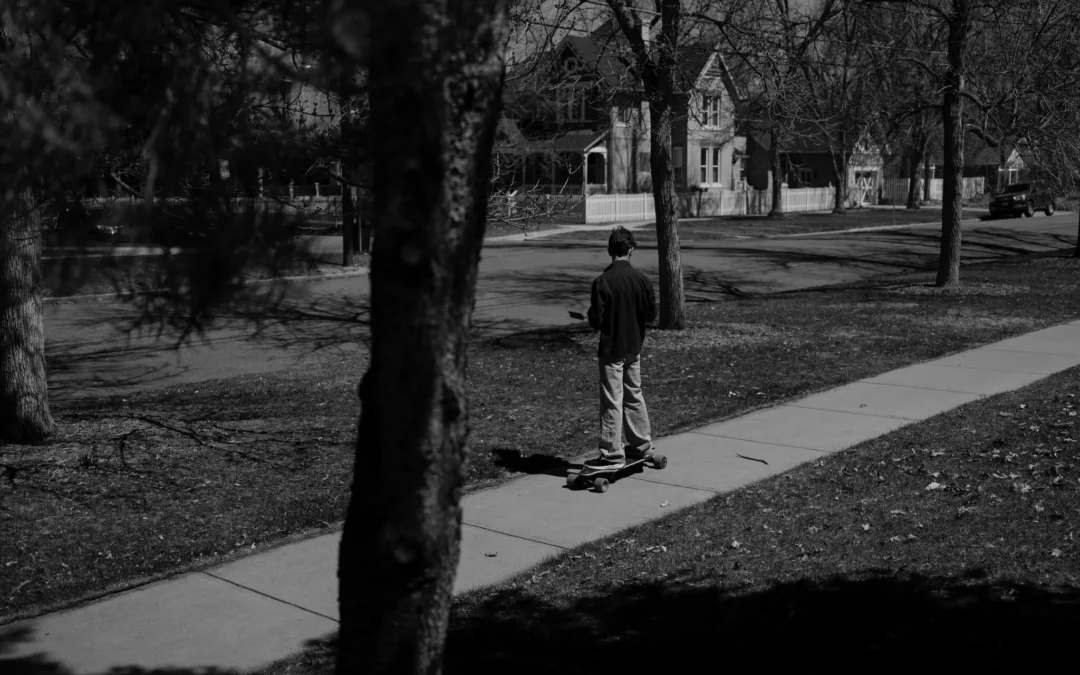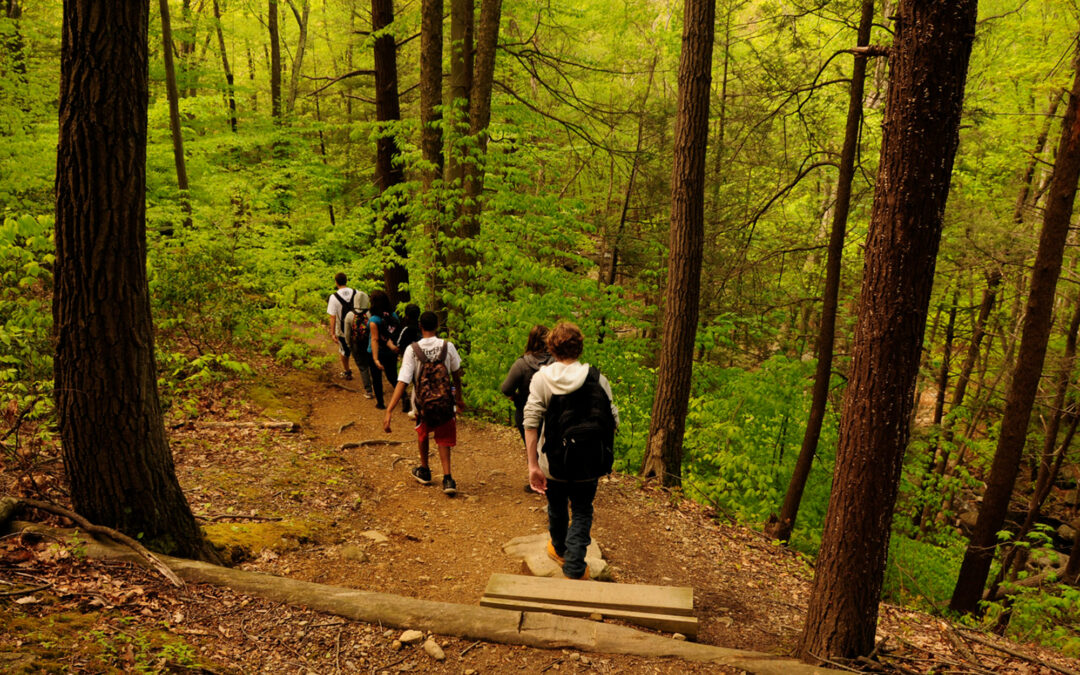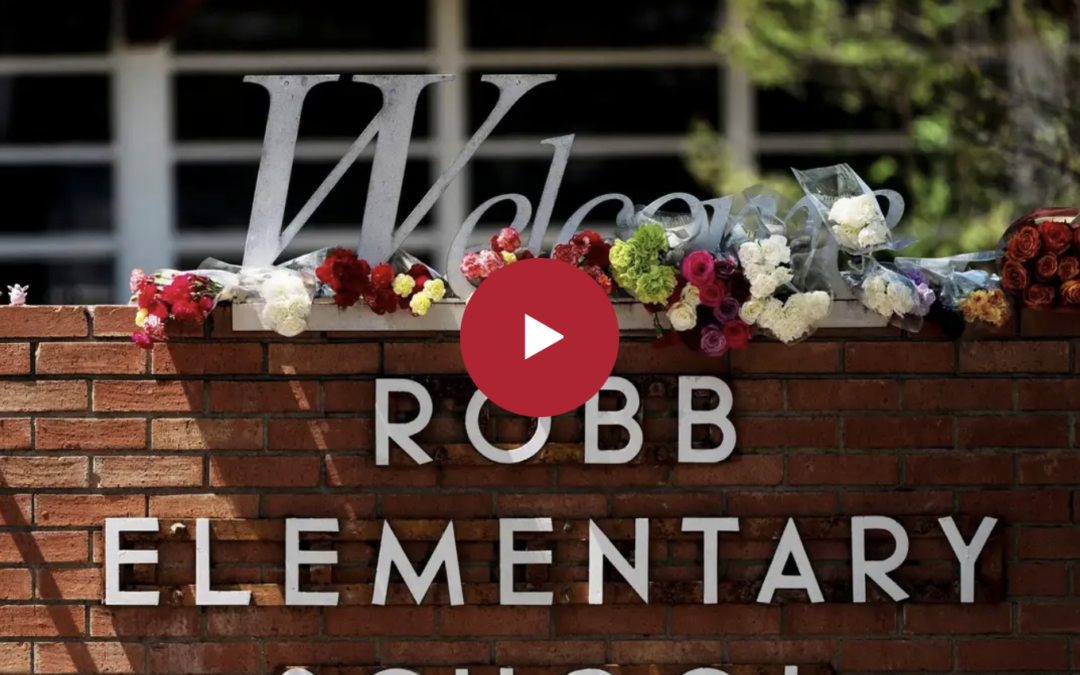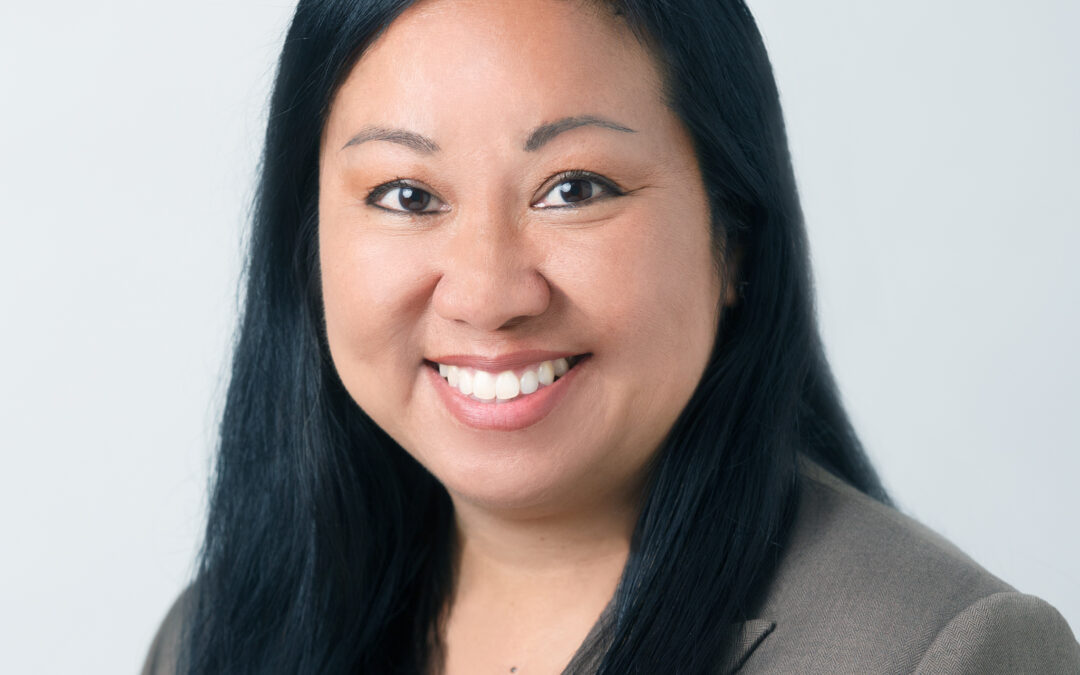
Hundreds of Suicidal Teens Sleep in Emergency Rooms. Every Night.
With inpatient psychiatric services in short supply, adolescents are spending days, even weeks, in hospital emergency departments awaiting the help they desperately need.
NYTimes, May 8, 2022, Matt Richtel spent more than a year interviewing adolescents and their families for this series on the mental health crisis.
On a rainy Thursday evening last spring, a 15-year-old girl was rushed by her parents to the emergency department at Boston Children’s Hospital. She had marks on both wrists from self-harm and a recent suicide attempt, and earlier that day she confided to her pediatrician that she planned to try again.
At the E.R., a doctor examined her and explained to her parents that she was not safe to go home.
“But I need to be honest with you about what’s likely to unfold,” the doctor added. The best place for adolescents in distress was not a hospital but an inpatient treatment center, where individual and group therapy would be provided in a calmer, communal setting, to stabilize the teens and ease them back to real life. But there were no openings in any of the treatment centers in the region, the doctor said.
Indeed, 15 other adolescents — all in precarious mental condition — were already housed in the hospital’s emergency department, sleeping in exam rooms night after night, waiting for an opening. The average wait for a spot in a treatment program was 10 days.
The girl and her family resigned themselves to a stay in the emergency room while she waited. But nearly a month went by before an inpatient bed opened up.
The girl, being identified by her middle initial, G, to protect her privacy, spent the first week of her wait in a “psych-safe” room in the emergency department. Any equipment that might be used for harm had been removed. She was forbidden to use electronics — to keep her from searching the internet for ways to commit suicide or asking a friend to smuggle in a sharp object, as teens before her had done. Her door was kept open night and day so she could be monitored.
It was “padded, insane-asylum-like,” she recalled recently in an interview. “Just walls — all you see is walls.”
She grew “catatonic,” her mother recalled. “In this process of boarding we broke her worse than ever.”
Mental health disorders are surging among adolescents: In 2019, 13 percent of adolescents reported having a major depressive episode, a 60 percent increase from 2007. Suicide rates, stable from 2000 to 2007, leaped nearly 60 percent by 2018, according to the Centers for Disease Control and Prevention.
G’s story describes one of its starkest manifestations of the crisis. Across the country, hospital emergency departments have become boarding wards for teenagers who pose too great a risk to themselves or others to go home. They have nowhere else to go; even as the crisis has intensified, the medical system has failed to keep up, and options for inpatient and intensive outpatient psychiatric treatment have eroded sharply.
Nationally, the number of residential treatment facilities for people under the age of 18 fell to 592 in 2020 from 848 in 2012, a 30 percent decline, according to the most recent federal government survey.The decline is partly a result of well-intentioned policy changes that did not foresee a surge in mental-health cases. Social-distancing rules and labor shortages during the pandemic have eliminated additional treatment centers and beds, experts say.
Absent that option, emergency rooms have taken up the slack. A recent study of 88 pediatric hospitals around the country found that 87 of them regularly board children and adolescents overnight in the E.R. On average, any given hospital saw four boarders per day, with an average stay of 48 hours.
“There is a pediatric pandemic of mental health boarding,” said Dr. JoAnna K. Leyenaar, a pediatrician at Dartmouth-Hitchcock Medical Center and the study’s lead author. In an interview, she extrapolated from her research and other data to estimate that at least 1,000 young people, and perhaps as many as 5,000, board each night in the nation’s 4,000 emergency departments.
“We have a national crisis,” Dr. Leyenaar said.
This trend runs far afoul of the recommended best practices established by the Joint Commission, a nonprofit organization that helps set national health care policy. According to the standard, adolescents who come to the E.R. for mental health reasons should stay there no longer than four hours, as an extended stay can risk patient safety, delay treatment and divert resources from other emergencies.
Yet in 2021, the average adolescent boarding in the E.R. at Boston Children’s Hospital spent nine days waiting for an inpatient bed, up from three and a half days in 2019; at Children’s Hospital Colorado in Aurora in 2021, the average wait was eight days, and at Connecticut Children’s Medical Center in Hartford, it was six.
Emergency-department boarding has risen at small, rural hospitals, too, with “no pediatric or mental health specialists,” said Dr. Christian Pulcini, a pediatrician in Vermont who has studiedthe trend in the state. “There is one clear conclusion,” he told the Vermont legislature recently. “The E.D. is not the appropriate setting for children to get comprehensive, acute mental health services.”
Doctors and hospital officials emphasize that adolescents should absolutely continue to come to the E.R. in a psychiatric emergency. Still, many emergency-room doctors and nurses, trained to treat broken bones, pneumonia and other corporeal challenges, said the ideal solution was more preventive care and community treatment programs.
“Frankly speaking, the E.D. is one of the worst places for a kid in mental health crisis to be,” said Dr. Kevin Carney, a pediatric emergency room doctor at Children’s Hospital Colorado. “I feel at a loss for how to help these kids.”
‘Actually a good day’
The challenge was evident one day in late February when Dr. Carney arrived for his shift at 3 p.m. The children’s hospital has 50 exam rooms in its emergency department, which fill with patients who have gone through an initial screening and need further evaluation. By midafternoon, 43 of the rooms were full, 17 of them with mental health cases.
“It’s breathtaking,” Dr. Carney said as he stood in the hallway. “Forty percent.”
On clocking in, Dr. Carney had inherited a block of 10 exam rooms from a doctor who was clocking out. “Seven are mental health issues,” Dr. Carney said. “Six are suicidal. Three of them made attempts.”
The adolescents who were deemed to be at physical risk to themselves or others could be readily identified: Their exam room doors were open so they could be monitored, and they wore maroon-colored scrubs instead of their own clothes. No shoelaces, belts or zippers.
Throughout the day, staff members at the hospital had called eight inpatient facilities in the region, looking for available slots in treatment centers where the 10 young boarders, as well as 17 other adolescents boarding at three smaller Colorado Children’s Hospital campuses around the state, could be placed.
One of the adolescents waiting in Aurora, a Denver suburb, was a 16-year-old who had been stabilized after attempting suicide and who needed a residential treatment spot. “But there are no beds,” Jessica Friedman, a social worker, said she had told the family.
“I have eight or nine conversations like this a day,” Ms. Friedman, standing in the hallway, told a reporter; so far that day she had had only two. “This is actually a good day.”
Standing nearby, Travis Justilian, a nurse and the interim clinic manager in the emergency department, said the flood of boarders “is crushing our staff.” He added, “We’re fixers and we’re sitting here doing nothing but watching them watch TV.”
Colorado is struggling with the same shortage of services that has hit hospitals nationwide. The state has lost 1,000 residential beds serving various adolescent populations since 2012, according to Heidi Baskfield, vice president of population health and advocacy for Children’s Hospital Colorado. The state closed one 500-bed facility, Ridgeview, which served at-risk young people, in 2021 because of instances of poor quality and abuse. Another facility, Excelsior, closed its 200 beds in 2017 because reimbursement rates were not high enough to support ongoing operations, the chief executive officer said at the time of the closing.
A major cause, Ms. Baskfield said, was the low reimbursement rates paid by Medicaid, the state insurance program. From 2006 to 2021, the daily Medicaid rate in Colorado allotted roughly $400 for a therapeutic residential bed — “less than some families spend to send their kids for a night to sleepaway camp,” Ms. Baskfield said.
The low rates also accounted for some of the quality issues, she said; it was hard to hire experienced staff. (In the past year, Colorado has raised its reimbursement to $750 per day by using money from the American Rescue Plan, but new beds have yet to open, and that source of money is temporary.)
Lisette Burton, chief policy and practice adviser for the Association of Children’s Residential and Community Services, a nonprofit advocacy group, noted that, nationally, the closure of facilities and the loss of beds was the result of many factors, including a well-intended, decades-long effort to keep foster children and other children out of institutional settings. But the intended substitutes — more nimble and specialized treatment options — were never funded and remain largely unavailable, she said.
Then came the pandemic, amplifying labor shortages and introducing social-distancing and quarantine guidelines that reduced the capacity for patients. “Demand went up, supply went down,” Ms. Burton said. “Now we’re in full-blown crisis.”
On that February day in Colorado, one inpatient bed finally opened up. It happened to be in the 12-bed inpatient ward of Children’s Hospital Colorado, just a few minutes’ walk from the E.R.
The ward’s hallways are wide, the walls painted light green and the lighting bright, to instill a feeling of comfort and calm. Each bedroom has windows looking outside and, next to the door, a glass panel enabling hospital staff to discreetly peer inside.
In a small communal room, four adolescent girls in maroon scrubs sat on blue chairs and couches. One listened to headphones and sang aloud to the soundtrack to “Encanto.” Another worked on a jigsaw puzzle of the sea. Two others chatted with a counselor.
The emergency department “is just a collection of rooms where patients are expected to stay in their rooms and comply with rules,” said Lyndsay Gaffey, director of patient care services at Children’s Hospital Colorado. In the inpatient ward, she said, the aim instead was to stabilize patients by having them work through trauma, receive therapy and interact with peers.
But they must be closely watched here, too. When a reporter rested a pen on a countertop, a staff member swept it up. “You cannot have this here unless it is on your person,” she said. “If a patient walks over and grabs it, it can basically be used as a weapon.”
How to Help Teens Struggling With Mental Health
Recognize the signs. Anxiety and depression are different issues but they do share some indicators. Look for changes in a youth’s behavior, such as disinterest in eating or altered sleep patterns. A teen in distress may express excessive worry, hopelessness or profound sadness.
Is it safe to go home?
In severe cases of mental distress, emergency-room doctors can compel an adolescent to board in the E.R. until inpatient services become available, however long that takes. Often, parents opt to return home with their child, to try to manage there while waiting for a treatment opening. But that option requires family and doctors alike to work through a difficult question: Is the adolescent safe to go home?
In early February, a 12-year-old boy, J, was struggling toward an answer at the emergency room of the Highlands Ranch campus of Children’s Hospital Colorado. (He is being identified by his first initial for privacy reasons.)
He had arrived that morning with his mother, after she discovered that he had been searching the internet for ways to commit suicide. Over the course of his day in the E.R., he was asked several times how safe he felt to go home. The mother recounted one exchange:
“Do you think you can go home?” the doctor asked.
“What’s the other option?” J asked.
“You’d be in the emergency room.”
“I can go home with my mom,” J said. “But if I feel like I’m going to kill myself, what do I do?’”
“You’ll come back to the emergency room,” the doctor replied.
J’s mother took him home and “hid every medicine and every knife,” she said. J wanted to get help and asked her that first night: “So can I start tomorrow?”
No, his mother told him, he’d have to wait. Sixteen days went by before a spot for J opened in an intensive treatment program. She watched her son around the clock. “It was the scariest two weeks of my life,” she said.
The longest wait
For adolescents like G, who stayed in the emergency room of Boston Children’s Hospital last spring, the experience can be wrenching.
G lives in a Boston suburb with a teenage brother, father and mother. The family has a history of anxiety and depression, the mother said, but G had been a happy and adventurous child. In middle school she started talking back and acting somewhat obsessively, behavior that her mother figured was typical for a teenager.
What G’s mother did not know was that her daughter had been cutting herself for two years, since seventh grade, before the pandemic began. “I cut with literally anything I could find — hockey cards, pipe cleaners, paper clips, anything,” G said. She described the self-harm as a “coping mechanism” to deal with inner pain. She hid the activity “with sweaters, hoodies, foundation.”
As the pandemic set in, G withdrew, and her grades fell. “Then came April 29,” her mother said. “We had a life before April 29 and a life after April 29.”
That day, she picked up G at school for a routine visit to the pediatrician. As G got into the car, her mother saw the marks on her wrists.
At the emergency room, G told the medical team she had tried to overdose a few weeks earlier and had regretted the next morning that she was still alive. In the exam room, she noticed a container of hand sanitizer. “I told them, ‘I’m thinking about drinking this,’” G recalled.
Admitting to her pain and self-harm provided her “with kind of a little bit of relief,” she said. “After two years of cutting and trying to kill myself, I was finally going to get some help. But I didn’t really get help.”
That first night, she was moved for safety reasons to a room that contained just a bed and, for her mother, a rollaway. With the door open, sleeping was difficult. “A sitter was literally staring at my kid,” G’s mother said. “It felt demoralizing.”
Mother and daughter played Uno, Go Fish, checkers and Connect Four. G, anxious and awake, received Ativan on three of the next four nights, then was prescribed Trazodone for chronic anxiety.
Boarding night after night in an emergency department can overwhelm some adolescents, said Dr. Amanda Stewart, an emergency room pediatrician at Boston Children’s. One day this February, she was treating an infant with a respiratory infection when she heard screaming. It came from a 12-year-old boy with attention-deficit disorder and autism who had threatened suicide and was boarding down the hall.
“Other patients started escalating,” Dr. Stewart recalled. “One of them, across the hall, started hitting her head against the wall.” The girl, 15, had entered the E.R. after a suicide attempt and had been calm until that point.
Dr. Stewart said that some teens tell her that boarding in the emergency department intensified their suicidal urges. “I’ve heard that from kids many times,” she said, recalling that they will say: “‘I’m not going to tell you next time, because it means I’m going to have to come here again.’”
Dr. Patricia Ibeziako, a child psychiatrist at Boston Children’s Hospital, said that adolescents do, in fact, receive some treatment while boarding in the emergency department, including basic counsel aimed at “crisis stabilization” that is “all geared to safety.”
“Boarding is not a great thing, but it’s still care,” Dr. Ibeziako said. “We’re not just putting a kid in a bed.”
Kid on fire
May 7 arrived — G’s eighth day in the emergency ward — and still no inpatient beds were available in the region. But a bed did open in the hospital, upstairs in the pediatric medical unit; this room had a window and a private bathroom, and a caregiver who watched G around the clock.
She “was very, very, very depressed and dejected,” her mother recalled. “She didn’t even cry anymore.”
Finally, 29 days after G arrived, a bed was located for her at an inpatient facility in an outlying suburb. She spent a week there but did not find the experience all that helpful.
“We learned the same coping skills over and over,” she said. Over the summer, she worked a fast-food job, but she continued cutting herself, she said, and did a better job of hiding it.
In the fall, she told a counselor at school that she planned to kill herself; she was quickly re-admitted to the same inpatient unit, given priority as a former patient, and spent two weeks there. When her stay ended, G went into an intensive outpatient program. But a counselor there told her mother that G needed more intensive care because she had described a plan to kill herself.
“They told me, ‘This kid is on fire, she’s too acute to be here,’” G’s mother recalled. This time, the family went to the emergency room at a different Boston-area hospital, Salem Hospital, where G boarded only one night and, this time, was lucky to get a bed in that hospital’s inpatient unit, where she spent three weeks, until mid-October.
G’s mood these days is “better than it was, but it still sucks,” she said recently. And, she added, “I’m better at covering things up more.”
“Once people ask you a question, ‘Do you feel suicidal,’ you have to say nope,” she said. “You can’t tell them anything or they’ll send you to the hospital.”
Matt Richtel is a best-selling author and Pulitzer Prize-winning reporter based in San Francisco. He joined The Times in 2000, and his work has focused on science, technology, business and narrative-driven storytelling around these issues. @mrichtel




